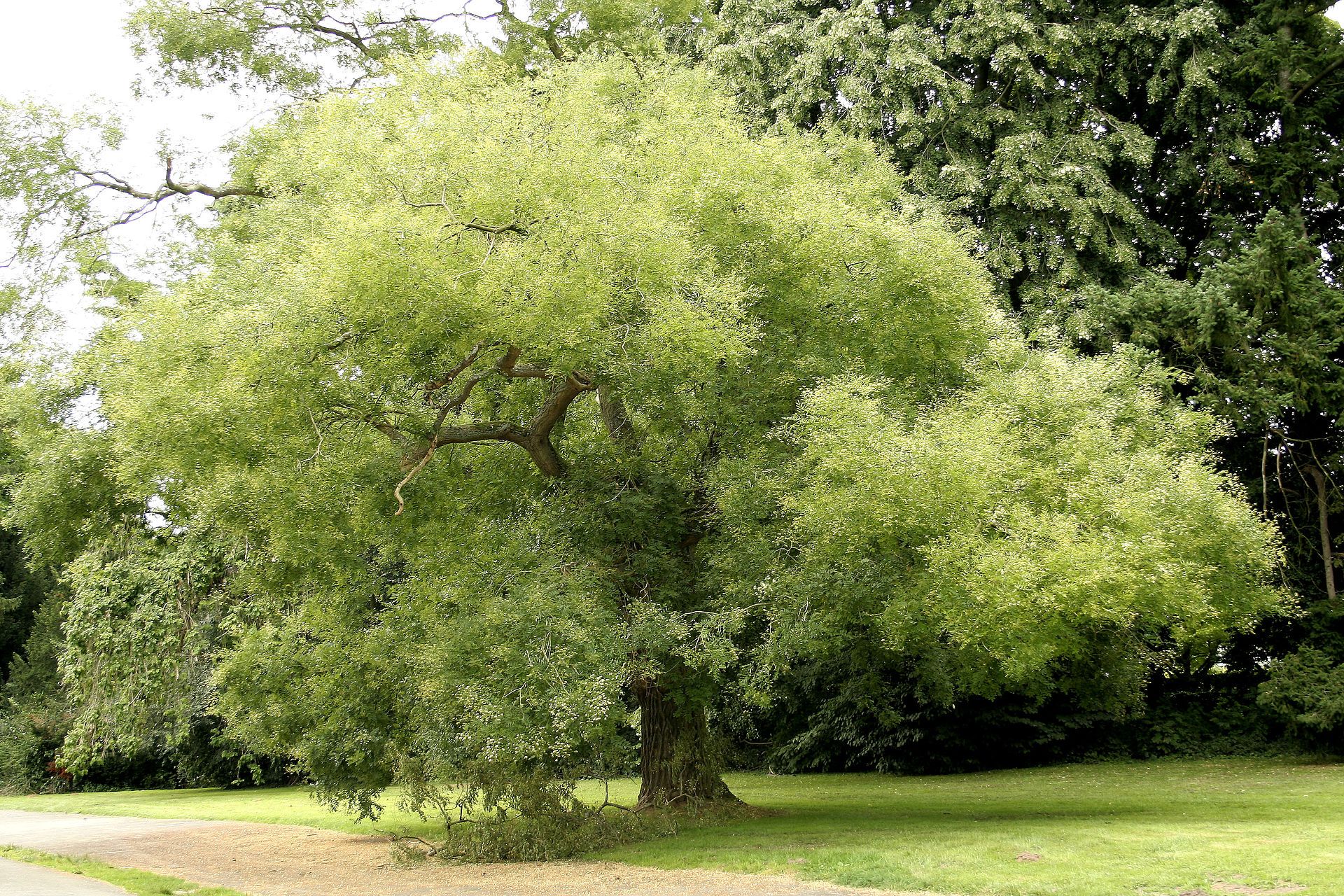Pagoda-Tree Extract Defends Against Inflammation in Arthritis Model
Researchers found a Fructus-sophorae extract protected against development of collagen-induced arthritis in mice.
Photograph by Jean-Pol GRANDMONT/Wikimedia Commons/CC-BY-SA-3.0.

New study results out of Korea suggest an extract from the Japanese pagoda tree (Styphnolobium japonicum L.) may help in mediating the symptoms of arthritis. Writing in Experimental and Therapeutic Medicine, researchers report that mice with collagen-induced arthritis who received an extract from Fructus sophorae (FSE)-the dried ripe fruit of S. japonicum-saw improvements to several factors related to inflammation and bone damage.
The study included 20 six-week-old BALB/c mice who were injected with bovine type-II collagen to induce arthritis. Following the onset of collagen-induced arthritis (CIA), the mice were randomized into one of three groups: a CIA control group, a group receiving 70 mg/kg of FSE once daily, and a group receiving 350 mg/kg of FSE once daily. A fourth group was also included that did not receive the collagen injection to serve as a normal control. The FSE administration period lasted two weeks.
By analyzing the serum and joint tissues of the mice, including macroscopic and histological investigations, researchers found several signs that FSE protected against development of CIA. For instance, in both the 70 and 350 mg/kg/day of FSE groups, a significant reduction in paw edema was observed compared to the CIA control group, and FSE reduced paw swelling in a dose-dependent manner. Additionally, researchers also found FSE supplementation was associated with improvements to several markers of inflammation, including significant reductions in levels of total immunoglobulin G2a and pro-inflammatory cytokines and mediators in the serum.
“The present study has demonstrated that FSE has a protective effect against disease progression in a mouse model of CIA,” researchers concluded. “This effect is associated with the suppression of factors associated with the rheumatoid inflammatory response by FSE, synovial inflammation, and cartilage and bone damage. The present results suggest that FSE may provide potential protection against inflammation and bone and cartilage damage in RA and, as such, would be a valuable candidate for further investigation as a novel anti-arthritic agent.”
Read more:
Collagen Peptides Reduce Cellulite in Women?
Alternative Joint-Health Ingredients Are on the Rise
UC-II Collagen More Effective for Knee Osteoarthritis Symptoms than Glucosamine and Chondroitin?
Michael Crane
Associate Editor
Nutritional Outlook Magazine
michael.crane@ubm.com
References:
Han HM et al., “Protective effects of Fructus sophorae extract on collagen-induced arthritis in BALB/c mice,” Experimental and Therapeutic Medicine, vol. 13, no. 1 (January 2017): 146–154







